T.R. Baskin Blu-ray Movie
HomeT.R. Baskin Blu-ray Movie 
Fun City Editions | 1971 | 90 min | Rated PG | Nov 07, 2023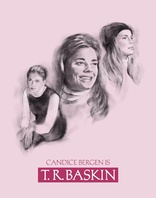
Price
List price:Amazon: $16.80 (Save 18%)
Third party: $16.80 (Save 18%)
Only 10 left in stock (more on the way).
Movie rating
7 | / 10 |
Blu-ray rating
| Users | 0.0 | |
| Reviewer | 4.0 | |
| Overall | 4.0 |
Overview
T.R. Baskin (1971)
Enthusiastic young woman runs away to Chicago to start a new life. She is soon confronted with the emotional coldness of the big city and has to search for her place in the scheme of things.
Starring: Candice Bergen, Peter Boyle, James Caan, Jane Alderman, Joyce MandelDirector: Herbert Ross (I)
| Drama | 100% |
Specifications
Video
Video codec: MPEG-4 AVC
Video resolution: 1080p
Aspect ratio: 1.85:1
Original aspect ratio: 1.85:1
Audio
English: DTS-HD Master Audio 2.0 Mono (48kHz, 24-bit)
Subtitles
English SDH
Discs
Blu-ray Disc
Single disc (1 BD)
Packaging
Slipcover in original pressing
Playback
Region A, B (C untested)
Review
Rating summary
| Movie | 2.5 | |
| Video | 4.0 | |
| Audio | 4.0 | |
| Extras | 3.5 | |
| Overall | 4.0 |
T.R. Baskin Blu-ray Movie Review
Reviewed by Brian Orndorf November 21, 2023In 1971, Herbert Ross was building a name for himself as a director, scoring respected hits in “Goodbye, Mr. Chips” and “The Owl and the Pussycat,” showing his stuff with drama and comedy. Instead of going bigger with his projects, Ross aims for something considerably smaller with “T.R. Baskin,” teaming with screenwriter Peter Hyams for a character study that toys with time and tone, following the acidic ways of a young woman slowly recognizing her isolation and emotional detachment after making a move to Chicago. Hyams (who would go on to an iffy helming career of his own) throws a lot of feelings and attitudes into this endeavor, but he mostly remains on casual cruelty, which is an interesting topic for nuanced writing. “T.R. Baskin” has stinging moments of personal reflection, but Ross seems a little befuddled by the whole thing, working to make character connections stick, but he’s less attentive to the overall mood of the picture, which remains in a weird gray area that’s not particularly satisfying to watch, often resembling a theatrical production where close proximity to actors is the selling point, not the story itself.
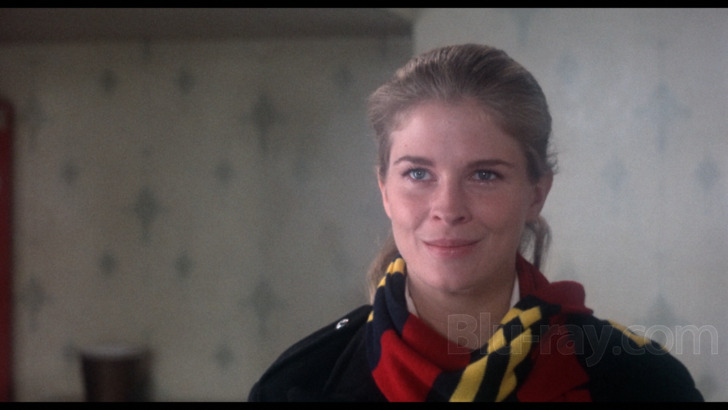
Jack (Peter Boyle) is a businessman on a trip to Chicago, managing to escape his life in Utica for a short amount of time. During his arrival, Jack runs into Larry (James Caan), an old frat brother, with the visitor demanding the pair have a drink and catch up on their lives. However, Jack is mostly interested in one thing, asking Larry if he knows where to find a prostitute, looking for some cheap thrills in the big city. Arriving at Jack’s hotel room is T.R. (Candice Bergen), a young woman who doesn’t carry working girl energy, but arrives for the job, entering a strange space with a nervous man unsure how to deal with the situation. T.R. has a love of sarcasm, dealing with Jack’s interests in a blunt manner, but the two eventually make a small connection, trading tales of their lives. T.R.’s adventures in Chicago have been rough, trying to participate in work and the dating scene, but aloneness always remains, achieving a strange moment of peace with Jack as she reflects on the hurt that’s accumulated in her life.
Jack has come from the wilds of New York to experience temporary freedom in Chicago. He’s alone, no family members to tend to, and he’s ready to get loose, preferring the company of a woman to help satisfy his lust before domestic routine returns to claim him. Expecting a seasoned professional, Jack is presented with T.R., who’s dressed normally and carries a certain coldness, electing to communicate in wit and snark, which knocks Jack off-balance. However, “T.R. Baskin” isn’t about Jack, eventually unfolding as a study of the woman and her time in Chicago, arriving in the city from Ohio, where she’s looking to snap her life to attention with a dramatic move to urban surroundings, unprepared for the event. “T.R. Baskin” remains with Jack and T.R. and their itchy hotel room rendezvous as a through line, but it primarily uses flashbacks to understand the path to misery, tracking the woman’s arrival in Chicago, taking a stand of independence in a city with decrepit apartments for her budget and employment options that are deadening, taking a position in a “steno pool” where she’s one of hundreds typing away all day in a large room.
T.R. seems to find a friend in Dayle (Marcia Rodd), an outgoing co-worker that appears to be shoving the new hire into the deep end of dating. “T.R. Baskin” explores a set-up with Arthur (Howard Platt), a businessman who’s frighteningly exact when it comes to ordering pizza and immediately dismissive of T.R., assigning her spiky personality to the women’s liberation movement.
Sexism is part of the journey in “T.R Baskin,” but Ross and Hyams aren’t exactly sympathetic to the lead character, leaving her a puzzle of emotions they don’t seem interested in solving, with the time jumps disrupting the storytelling flow instead of enhancing it. Time in the hotel room is strange, exploring how T.R. and Jack deal with each other, inspiring humiliations for the traveler he weirdly endures, but they remain together. Again, elements of dramatic connection and character business are present, hinting at great psychological profiles to come, but Hyams mostly sticks with a male perspective for a female story, bringing warmth to Jack and T.R.’s afternoon, with the emotionally needy customer eventually sharing his dreams with the sex worker instead of his family, and she miraculously stays for the conversations.
T.R. Baskin Blu-ray Movie, Video Quality 
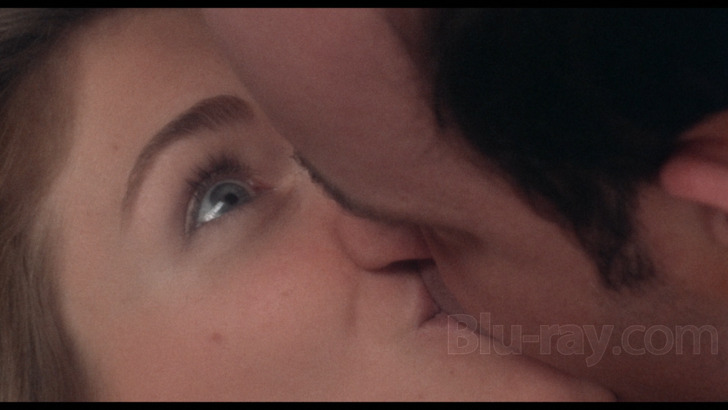
The AVC encoded image (1.85:1 aspect ratio) presentation is listed as a "new 4K restoration from its original 35mm camera negative." There's inherent softness to the cinematography of "T.R. Baskin," but detail is secured throughout the viewing experience. Close-ups deliver mildly textured skin surfaces and fine hair, and period costuming is fibrous. Interiors are open for inspection, visiting workspaces and apartments. Exteriors showcase decently deep Chicago locations. Colors retain their seasonal coolness, capturing the autumnal setting of the feature. Clothing choices and store visits bring out stronger primaries, and skin tones are natural. Delineation is satisfactory. Grain is heavy and film-like. Source is in good condition.
T.R. Baskin Blu-ray Movie, Audio Quality 
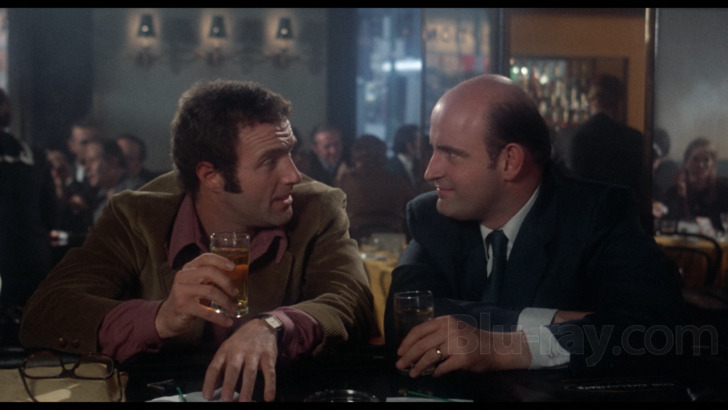
The 2.0 DTS-HD MA mix offers a reasonably clear understanding of dialogue exchanges, through some softer passages get very quiet at times. Emotional offerings and social experiences are intelligible, balanced with occasional musical offerings, which retain clarity. Atmospherics are simple but appreciable.
T.R. Baskin Blu-ray Movie, Special Features and Extras 
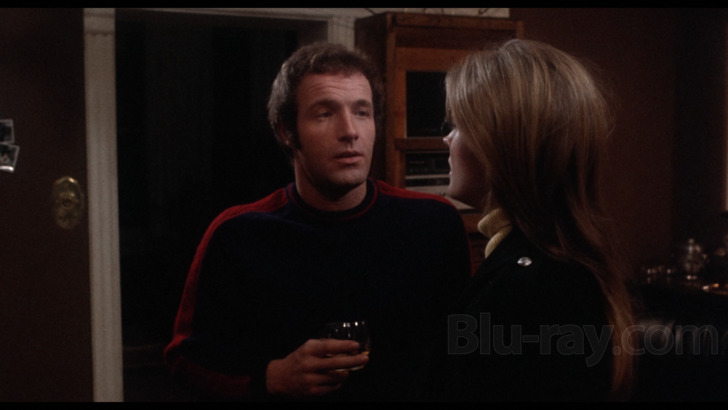
- Booklet (14 pages) offers an essay by film critic Kat Sachs.
- Commentary features podcasters Ben Reiser and Scott Lucas.
- "Get in the Tent" (14:39, HD) is an interview with writer Peter Hyams, who opens with advice for people interested in getting into the entertainment industry, telling them to do anything before admitting to his own privileged journey into employment (being the son of a producer). Beginning work in television, Hyams learned more about the creative business, setting out to write "T.R. Baskin" as a calling card. He was after an "angry women's lib piece," and one set in Chicago, in love with the city. The interviewee reflects on his relationship with director Herbert Ross and his "Hollywood sensibilities," and details his longtime friendship with Candice Bergen. Co-stars are also remembered, spending time with James Caan and Peter Boyle. Creative achievements are noted, but Hyams largely avoids a meaty post-mortem discussion of "T.R. Baskin."
- A Trailer has not been included on this release.
T.R. Baskin Blu-ray Movie, Overall Score and Recommendation 
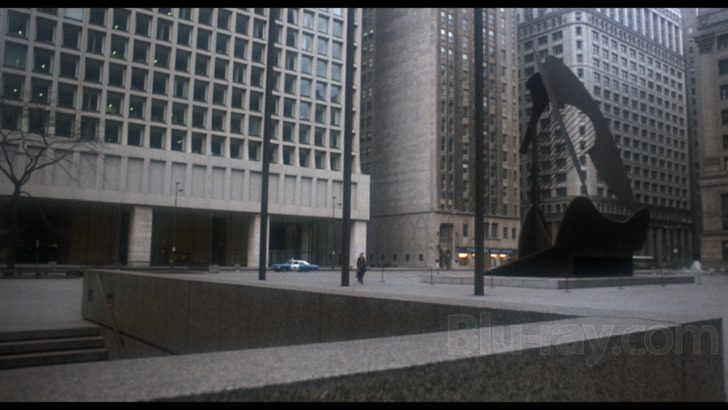
As a character examination, "T.R. Baskin" isn't fulfilling, doing little with the eponymous character beyond beats of quirkiness and emotional despair, with Bergen doing her best to represent the woman's dwindling belief in the goodness of people, which is another fascinating idea Hyams doesn't go deeper with. Larry returns to the feature in the final act, making his connection to T.R. clear, but Ross mistakes editorial slackness for intimacy, slowing the picture down at the wrong moment. "T.R. Baskin" ends up as a series of monologues and screen stillness, but Ross does have atmosphere, exploring the deadening ways of office life, the phoniness of predators, and the chill of Chicago, which comes for T.R. and her creeping loneliness. It all seems like a recipe for riveting drama, but Ross and Hyams can't layer the material in an interesting way.
Similar titles
Similar titles you might also like

The Sweet East
Slipcover in Original Pressing
2023

Drylongso
1998

Pastor Hall
Indicator Series | Limited Edition
1940

Bartleby
1970

Women Talking
2022

Eyimofe (This Is My Desire)
2020

CODA 4K
2021

Variety
1983

Mogul Mowgli
2020

Tommaso
2019

I Am Not a Witch
Slipcover in Original Pressing
2017

Phaedra
1962

Distant
Slipcover in Original Pressing
2002

Ladybug Ladybug
1963

Mister Johnson
1990

Smash Palace
1981

Moonlighting
1982

Faults
2014

Chop Shop
2007

The People Next Door
1970
